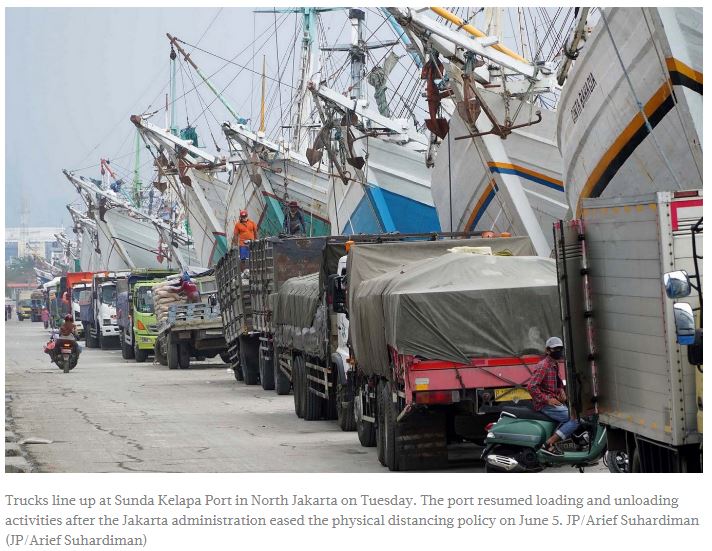Indonesia: Govt to proceed with logistics system reform amid high costs
The government is going ahead with the plan to implement the so-called National Logistics Ecosystem (NLE) platform, expected to cut red-tape, reduce high logistics costs and boost the country’s competitiveness, a senior minister has said.
The platform is expected to reduce logistics costs from the current 23.5 percent of the country’s gross domestic product (GDP), the highest among Southeast Asian nations according to the World Bank, to just 17 percent of GDP, said Finance Minister Sri Mulyani Indrawati.
“We are hoping that this initiative will make businesses more resilient as we know that the national logistics system plays a huge role in determining the competitiveness of Indonesia’s economy,” she told reporters in a press briefing on Sept. 24. “We aim to reduce logistics costs by 6 percent of GDP, which would be very significant going forward.”
According to several ministers, the reform in the logistics system will include simplifying business processes related to logistics and payments for state revenue, as well as improving the management of ports and distribution routes, among other measures.
To do so, the government will integrate the information from various databases, including the government’s export-import licensing website the Indonesia National Single Window (INSW) with Indonesia’s port system (Inaport), the Trade Ministry’s online trade system (Inatrade), and the Customs-Excise Information System and Automation (CEISA), to name a few.
President Joko “Jokowi” Widodo’s administration has been aiming to cut the staggeringly high logistics costs in the country for years, including by making infrastructure development one of the top state budget allocations every year.
Indonesia’s ranking on the World Bank’s Logistics Performance Index (LPI) 2018 rose 17 places to 46th out of the 160 countries surveyed. It remained below its neighboring middle-income countries of Thailand (32nd), Vietnam (39th) and Malaysia (41st).
The NLE initiative is a follow up to Presidential Instruction (Inpres) No. 5/2020 regarding the management of the national logistics ecosystem issued by the President in June.
The government has projected that it will be able to save Rp 1.5 trillion (US$100.75 million) per year through the reform, according to Coordinating Maritime and Investment Minister Luhut Pandjaitan, adding that the reform will cut the number of licensing processes from 17 to just one.
According to a report by the World Bank, involvement in global value chains, which rely on a country’s ability to import raw materials and to export products of higher value, can boost economic growth, create better jobs and reduce poverty.
However, Indonesia’s role in the global value chains has diminished as the country exports more commodities but fewer manufacturing goods.
Indonesia’s inability to take advantage of global value chains is also partly the result of high transportation costs due to distortionary port pricing and burdensome regulations, according to the report.
“Indonesia charges high prices for international trade, with port services in Indonesia being five times as expensive as in Singapore,” said World Bank East Asia Pacific chief economist Aaditya Mattoo.
The country’s “excessive” port protection has hurt businesses and makes it harder for them to import products, he added, citing national standard (SNI) compliance, pre-shipment inspection and import approval as examples.
Indonesian Logistics and Forwarders Association (ALFI) chairman Yukki Nugrahawan lauded the government’s move, saying that this would be a positive catalyst for the country’s logistics system going forward.
“Businesspeople are fully committed to supporting the government in implementing the NLE platform, we are hoping that we can give our best to support the economy,” he said on Sept. 24.
Source: https://www.thejakartapost.com/news/2020/09/28/govt-to-proceed-with-logistics-system-reform-amid-high-costs.html


 English
English




